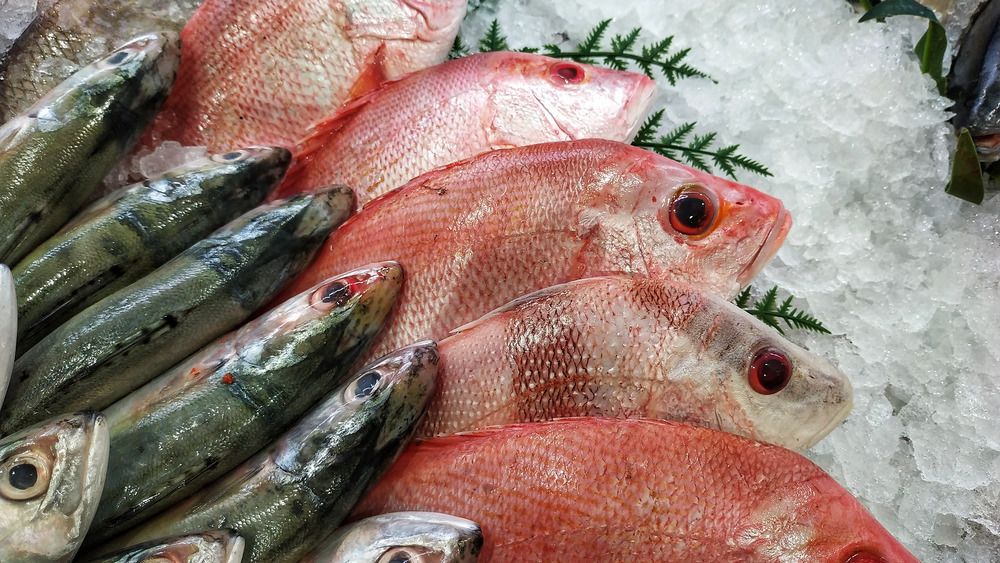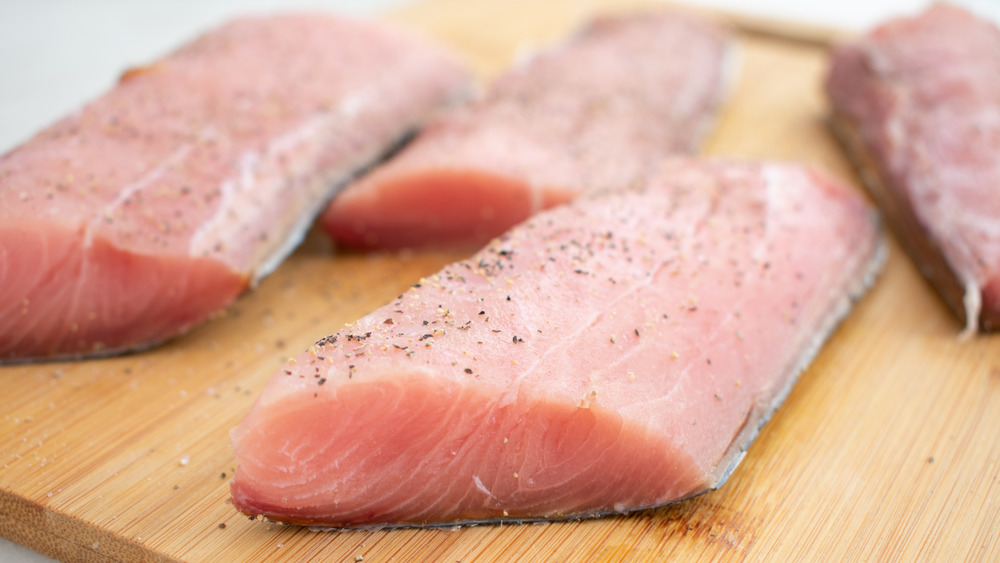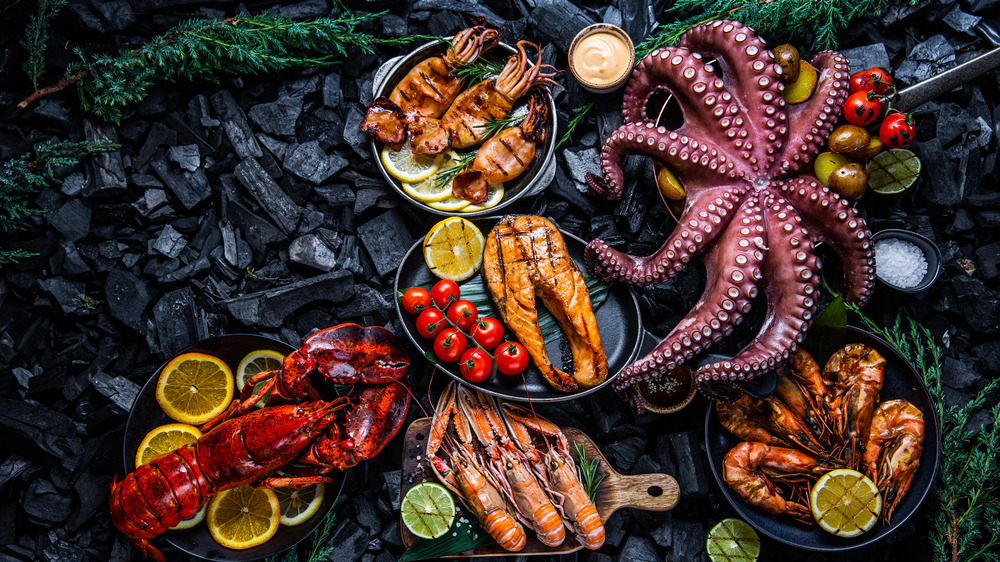Don't Take One More Bite Of Fish Until You Read This
We may receive a commission on purchases made from links.
When you want to eat healthy, fish can do some amazing things. According to the Department of Health, eating fish provides our bodies with some key nutrients like magnesium, zinc, iodine, and more. The American Heart Association even recommends that we include seafood into our diet twice a week to reap the full health benefits. While serving up multiple fish entrees a week seems like a no-brainer with all the positive news, fish can hide some secrets you need to know about.
Toby Amidor, MS, RD, CDN, FAND, award-winning nutrition expert and author of the best-selling The Best 3-Ingredient Cookbook, has arrived to set the record straight when it comes to the best ways to eat fish. Amidor explained to Mashed that some seafood contains toxic methylmercury, a substance that certain individuals need to consume in very limited quantities.
People who may become pregnant, those who are pregnant, those who are lactating, and young children "should opt for fish that is lower in methylmercury and higher in EPA and DHA such as salmon, anchovies, sardines, Pacific oysters, trout, tilapia, shrimp, catfish, crab, and flounder," Amidor said. According to Amidor, these individuals should limit their seafood intake to 8 to 12 ounces per week in order to avoid excess methylmercury as recommended by 2020-2025 dietary guidelines.
What else is lurking in our favorite seafood?
Seafood presents other risks with the potential to do serious damage to your health. While you may have never heard of a "scombroid" before, you definitely know some fish that make up this category of ocean-dwelling animals. "When high levels of the amino acid histamine accumulate in scombroid and other species of fish it can result in scombroid poisoning," Amidor said. "The types of fish include tuna, bonito, mackerel, and mahi-mahi. When the fish are time and temperature abused, the bacteria on the fish make the toxin. Oftentimes, this can occur during storage or preparation of the fish."
"The toxin itself cannot be destroyed by freezing, cooking, smoking or curing," Amidor continued. "Common symptoms of scombroid poisoning initially are reddening of the face and neck, sweating, headache, and burning or tingling sensation in the mouth or throat. Later you may have symptoms such as diarrhea and vomiting."
Ciguatera fish poisoning is also a little-known food safety risk. "Ciguatera is a toxin that can sometimes be found in marine algae," Amidor explained. "This fish poisoning is [linked] to... fish like barracuda, grouper, snapper, and jacks. The most common symptoms include hot and cold sensations, nausea, vomiting, tingling in the fingers, toes, and lips, and joint and muscle pain." The most worrisome part? The toxin can't be smelled or tasted and isn't destroyed by cooking or freezing. "Symptoms can actually last for months or even years, depending on the severity of the illness," Amidor said. You can avoid both of these toxins by buying your fish from reputable establishments.
What are the safest ways to eat fish?
Despite these risks, eating fish can do some incredibly positive things for our health. "Fish provides a variety of nutrients that can help with the growth and development of a child," Amidor said. "In addition, as part of a healthy eating pattern, fish offers heart-healthy benefits and helps lower the risk of obesity."
An extra serving of fish in a week can also round out our diet with some well-deserved nutrients. "In the 2020-2025 dietary guidelines, seafood, which includes fish and shellfish, is a protein foods subgroup that provides beneficial fatty acids called eicosapentaenoic acid (EPA) and docosahexaenoic acid (DHA)," Amidor explained. "It should be noted that although most folks do eat enough protein, the variety consumed within the protein subgroups (meat, poultry, eggs/seafood/nuts, seeds, soy food products) do not meet recommendations. Almost 90 percent of Americans DO NOT meet the seafood recommendations!"
Despite the risks, fish help give your diet the variety it needs and shouldn't be forgotten next time you make a grocery run! Just be sure to be careful about where you get your fish and what kind you're selecting.


